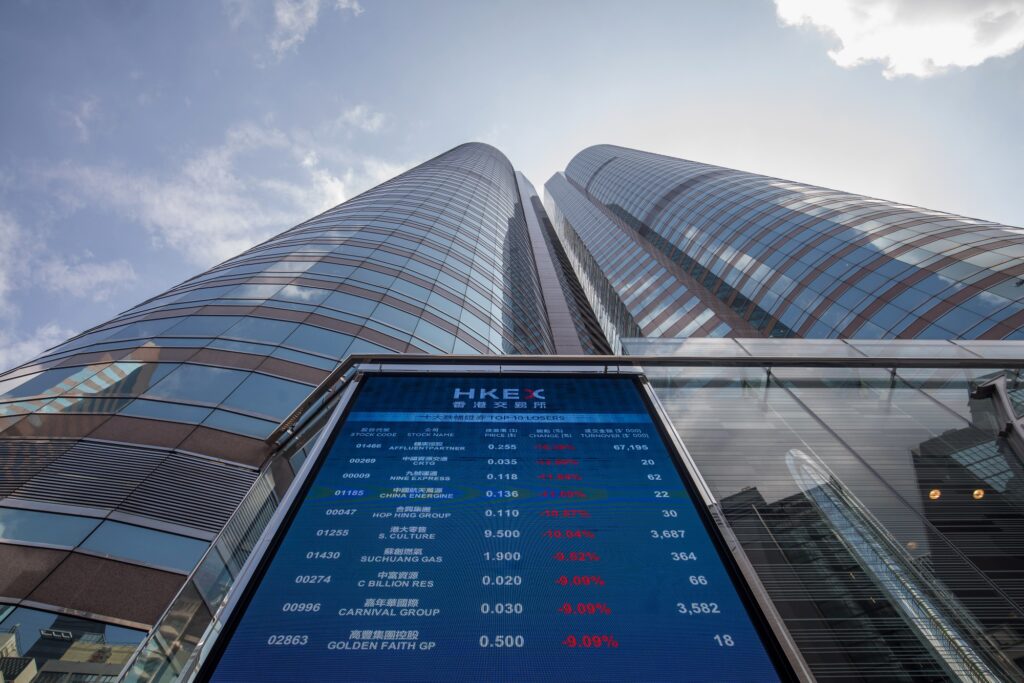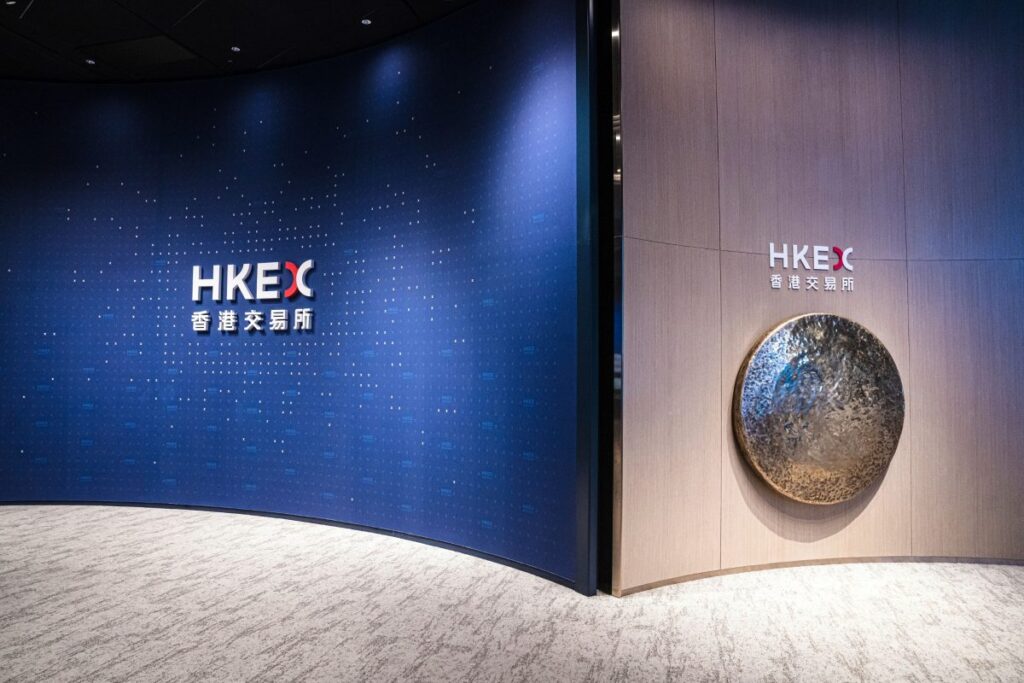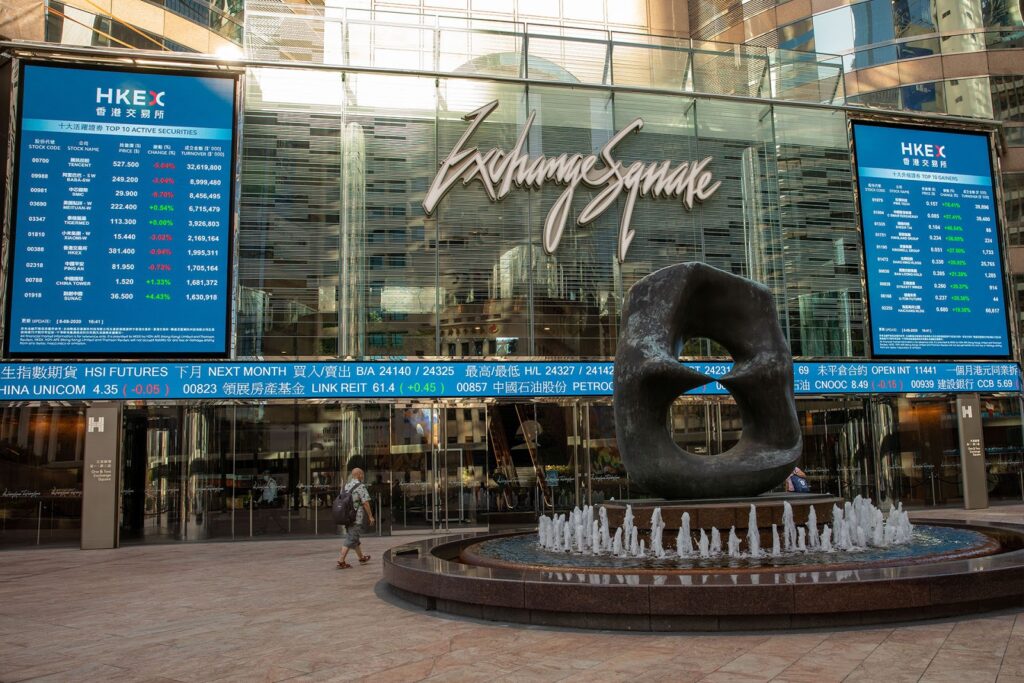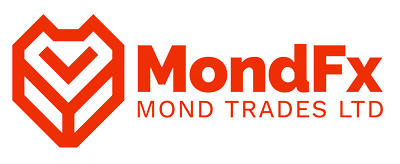The Hong Kong Stock Exchange (HKEX) market, as one of the leading financial hubs in Asia, plays a vital role in the economic dynamism of the region. This market, with a rich history since 1891, today has become a strategic bridge between the economies of the East and the West. By offering a wide range of financial instruments and exploiting advanced technologies, HKEX provides unparalleled opportunities for global investors and growing companies. A deeper understanding of this market can be a window to a better understanding of financial dynamics in Asia and emerging opportunities in this region.
Introduction to the Hong Kong Stock Exchange (HKEX) market
History and background
The Hong Kong Stock Exchange (HKEX) is one of the oldest and largest stock exchanges in the world. The story of this market goes back to 1891, when the first official stock exchange of Hong Kong was established under the name “Stock Brokers Association”. In 1914, the association was renamed the Stock Exchange of Hong Kong. After the Second World War and with the rapid economic growth of Hong Kong, the number of stock exchanges increased and new stock exchanges such as “Far East”, “Kam Ngan” and “Kowloon” were created.
In 1980, these exchanges were merged to form the Stock Exchange of Hong Kong (SEHK) with the aim of creating a powerful central institution. This merger helped strengthen the market structure and increase transparency. However, the market crash of 1987 showed that further reforms were needed. These reforms led to the creation of a central exchange system and the establishment of the Securities and Futures Commission (SFC) in 1989.
In the 1990s, the Hong Kong Stock Exchange made great strides in adopting new technologies. In 1993, automatic trading and in 1995, optional trading were introduced. Finally, in 2000, the Stock Exchange of Hong Kong (SEHK), the Stock Barter Exchange of Hong Kong and the Hong Kong Futures Exchange merged to form the Hong Kong Stock Exchange (HKEX). The merger was an important milestone in the modernization and strengthening of Hong Kong’s financial infrastructure.
Introduction of HKEX and its key details
Hong Kong Stock Exchange (HKEX) as one of the largest stock exchanges in the world in terms of market value, plays an important role in the local and global economy. HKEX is not only a place to buy and sell shares of Hong Kong and Chinese companies, but also a platform for trading futures, bonds, exchange-traded funds (ETFs) and other financial instruments.
This exchange operates using an advanced trading system called Orion Trading Platform – Securities Market (OTP-C), which operates based on price and time priority. This system enables fast and efficient transactions and has the ability to adapt to changing market needs and technologies.
As one of the largest stock exchanges in Asia, HKEX is the fifth largest stock exchange in the world and the third largest stock exchange in Asia after the Tokyo Stock Exchange and the Indian Stock Exchange. In January 2024, the combined market capitalization of the HKEX reached $3.97 trillion and 2,609 companies were listed on the exchange. Most of these companies are from Hong Kong (2,428 companies) and the rest are from other countries (181 companies).
Among the major and prominent companies traded on HKEX are major Chinese banks such as Industrial and Commercial Bank of China (ICBC), China Construction Bank (CCB) and Agricultural Bank of China (ABC). Also, large technology companies such as Tencent Holdings are also present in this stock market and are considered among the most valuable companies.
In general, HKEX is not only recognized as a large and reliable financial market, but also plays a significant role as a key institution in attracting capital and facilitating the economic growth of the region. By offering various facilities and services, this stock exchange provides many opportunities for investors and companies and is known as one of the main pillars of the global financial market.
Structure and components of HKEX
Stock Exchange of Hong Kong (SEHK)
The Stock Exchange of Hong Kong (SEHK) is one of the most important and largest sectors of the (HKEX). This market plays the main role in buying and selling shares of different companies. The SEHK serves as a platform for trading stocks, bonds, exchange-traded funds (ETFs) and other financial instruments. This market uses an advanced trading system called Orion Trading Platform – Securities Market (OTP-C), which is based on price and time priority, and makes transactions quickly and efficiently.
SEHK plays a vital role in attracting domestic and foreign capital as well as strengthening Hong Kong’s financial market by providing a transparent and orderly environment for transactions. This market also provides a platform for companies to raise their required capital through initial public offering (IPO). With more than 2,600 listed companies, the SEHK is recognized as one of the largest stock markets in the world.
Hong Kong Futures Market (HKFE)
The Hong Kong Futures Market (HKFE) is another division of HKEX that focuses on futures and derivative contracts. The HKFE allows investors and traders to buy and sell futures contracts based on their predictions of future prices. This market plays an important role in risk management and providing diverse investment opportunities for investors.
Futures allow traders to make greater potential profits using leverage, but with these opportunities come greater risks. By offering a variety of instruments such as stock index futures, commodity futures, and currency futures, HKFE helps investors implement various strategies to manage risks and take advantage of market opportunities.
Clearing Houses and their role
Clearinghouses play a vital role in ensuring the security and efficiency of trading in HKEX. These chambers act as intermediaries between buyers and sellers and ensure that each transaction is settled properly and that the parties to the transaction fulfill their obligations. Clearing houses help to build trust in the market by reducing the risks associated with retracing (non-fulfillment of obligations) and ensuring the accuracy and transparency of transactions.
One of the most important clearinghouses on the HKEX is the Hong Kong Securities and Exchange Commission (HKSCC), which is responsible for the clearing and settlement of stock and bond transactions. Using state-of-the-art systems and technologies, HKSCC conducts the transaction settlement process quickly and efficiently, ensuring that each transaction is properly recorded and documented.
In addition to the HKSCC, HKEX has another clearinghouse, the Hong Kong Futures Clearing Corporation (HKCC), which is responsible for the clearing and settlement of futures and derivative contracts. HKCC contributes to the stability and strength of the futures market by managing the risks associated with futures trading and providing clearing services efficiently.
Collectively, the structure and components of HKEX including the Stock Exchange of Hong Kong (SEHK), the Hong Kong Futures Market (HKFE), and the Clearing Houses (HKSCC and HKCC) work together to provide a safe, transparent and efficient market for investors and Companies. This comprehensive and coherent structure helps HKEX to be recognized as one of the top financial markets in the world and plays an important role in attracting capital and strengthening the regional economy.

The operation and mechanism of trading in HKEX
OTP-C transaction system
Orion Trading Platform – Securities Market (OTP-C) is the main trading system of the Hong Kong Stock Exchange (HKEX). This system is designed to facilitate and improve the efficiency of stock and other securities transactions. OTP-C operates on a price and time priority basis, meaning that orders are executed at the best price and then based on the time of entry.
This system is capable of processing a high volume of transactions with high speed and accuracy and uses advanced technologies to ensure security and transparency of transactions. OTP-C also provides brokers and investors access to real-time market information and automated order execution. These features help increase liquidity and reduce transaction costs, thereby making the market more attractive to all participants.
All kinds of orders and trading sessions in HKEX
In HKEX, there are different types of orders that investors can use depending on their needs and strategies. Some of the most common types of orders are:
- Market Order: This type of order instructs the broker to buy or sell shares at the best price available in the market. These orders are executed quickly, but the final price may be different from the price expected by the investor.
- Limit Order: This type of order instructs the broker to buy or sell stocks only if the price reaches a certain level. These orders may not be executed as quickly, but they give the investor more control over the price of the transaction.
- Stop Order: This type of order is activated when the stock price reaches a certain level. These orders are usually used to limit losses or lock in profits.
HKAEX also has several trading sessions, each of which plays a specific role in the trading process:
Pre-opening Session: This session is held from 9:00 to 9:30 in the morning and allows investors to enter their orders before the official start of the market. In this meeting, the opening price is determined.
Continuous Trading Session: This session is held from 9:30 AM to 12:00 PM and then from 1:00 PM to 4:00 PM. During this period, transactions are continuously made and prices are determined based on supply and demand.
Closing Auction Session: This session is held from 4:00 pm to 4:10 pm and allows investors to enter their orders to determine the closing price.
Trading hours and days
Trading hours at HKEX are generally divided into two parts: the morning session and the afternoon session. The morning session runs from 9:30 AM to 12:00 PM and the afternoon session runs from 1:00 PM to 4:00 PM. This structure allows the market to be open for a sufficient time during the day and provide more trading opportunities for investors.
Trading days at HKEX are from Monday to Friday, and the market is closed on Hong Kong public holidays. These holidays include public holidays such as Chinese New Year, National Day and other public holidays whose calendars are announced by HKEX every year.
All in all, the performance and mechanism of trading in HKEX, using the advanced OTP-C system, various types of trading orders and sessions, and the appropriate timing structure, help create an efficient, transparent and safe market for investors. These features have made HKEX known as one of the top financial markets in the world and play an important role in attracting capital and facilitating financial transactions.
HKEX supervisory bodies
Securities and Futures Commission (SFC)
The Securities and Futures Commission (SFC) acts as the primary regulatory body for the Hong Kong Stock Exchange (HKEX). The SFC was established in 1989 and its main task is to ensure the fairness, transparency and efficiency of financial markets. By closely monitoring market activities, this commission helps to maintain investors’ confidence and ensure the correct implementation of laws and regulations.
The SFC has extensive powers to monitor and regulate the market. These powers include licensing brokers and financial institutions, monitoring market transactions and activities, investigating and prosecuting violations, and enforcing securities and futures laws. Also, the SFC works closely with other international and regional regulatory bodies to coordinate and standardize financial laws and regulations.

Operational units and the role of each in monitoring the market
As a self-regulatory body, HKEX has several operational units, each of which plays an important role in monitoring and managing the market. These units include:
Monitoring and Surveillance Unit: This unit is responsible for continuous monitoring of trading activities in the market. Using advanced monitoring systems, this unit can identify and investigate suspicious activities and market anomalies. The main purpose of this unit is to prevent market manipulation and ensure fairness in transactions.
Enforcement Unit: This unit is responsible for investigating and following up violations related to market rules and regulations. These violations can include price manipulation, misinformation, or fraud. The Enforcement Unit works closely with the SFC and other regulatory bodies to ensure proper enforcement of laws and regulations.
Listing and Issuer Regulation Unit: This unit is responsible for reviewing and evaluating companies’ requests to enter the stock market. This unit helps maintain the quality and credibility of the market by ensuring that companies comply with listing standards and requirements.
Risk Management Unit: This unit helps to reduce and manage these risks by analyzing and evaluating various risks related to market activities. This includes financial, operational and systemic risks that can affect the stability and efficiency of the market.
Importance and economic role of HKEX
The role of HKEX in the local and global economy
As one of the largest stock exchanges in the world, HKEX plays a very important role in the local and global economy. As an important platform for attracting domestic and foreign capital, this market provides many opportunities for economic growth and development. By providing a platform for companies’ financing, HKEX helps boost innovation, job creation and economic growth.
This stock exchange also plays an important role in facilitating international trade and attracting foreign investors. As one of the world’s leading financial centers, Hong Kong can attract global capital and strengthen its position in the international economy by using HKEX.
Major and prominent companies on HKEX
HKEX hosts a large number of large and prominent domestic and international companies. Some of these companies include:
Tencent Holdings: One of the largest Chinese technology companies that operates in various fields including social networks, online games and financial services.
Alibaba Group: China’s electronic commerce giant, which, in addition to commercial activities, is also present in the fields of finance, logistics and media.
Industrial and Commercial Bank of China: The largest bank in China and one of the largest banks in the world in terms of assets.
China Construction Bank: One other of the largest banks in China that operates in various financial and credit fields.
By participating in HKEX, these companies not only help attract large capital, but also play an important role in strengthening the local economy and increasing the credibility and attractiveness of the market.
The importance of capital attraction and economic growth of the region
Capital attraction is one of the most important factors for economic growth and regional development. By providing a suitable platform for attracting domestic and foreign capital, HKEX helps companies to secure the financial resources they need for the development and expansion of their activities. These funds can lead to the increase of production capacity, innovation and creation of new jobs.
In addition, HKEX encourages investors to make long-term and sustainable investments by increasing transparency and confidence in the market. This issue contributes to the stability and economic strength of the region and plays an important role in strengthening Hong Kong’s position as one of the world’s financial centers.
Overall, HKEX contributes to attracting capital, economic growth and strengthening Hong Kong’s global position by providing a transparent, orderly and efficient environment for financial transactions. As one of the main pillars of the region’s economy, this stock exchange plays a vital role in economic development and progress.

How to buy and sell stocks on HKEX
How to trade stocks, indices, and ETFs
Trading in the Hong Kong Stock Exchange (HKEX) market is carried out through the advanced Orion Trading Platform – Securities Market (OTP-C) system. This system allows investors to buy and sell various types of financial instruments such as stocks, indices, and exchange-traded funds (ETFs). To trade on HKEX, investors go through authorized brokers who have direct access to the trading system.
Shares of various companies are traded on the HKEX, and investors can benefit from the growth in share prices and dividends. Indices, as financial instruments calculated based on the performance of a group of specific stocks, allow investors to bet on the overall movement of the market. ETFs are also investment funds whose shares are traded on the stock exchange and usually track certain indices.
Steps and important points in buying and selling shares
To buy and sell shares on HKEX, investors must go through some steps and pay attention to important points:
Opening a brokerage account:
– First, you must open a brokerage account in one of the authorized brokerage companies.
– This account provides access to the trading system and buying and selling shares.
Research and analysis:
– Before buying stocks, do a thorough research and analysis of the companies and the market situation.
– The use of financial reports, technical and fundamental analysis can be helpful.
Order:
– After making a decision, register your buy or sell order through the brokerage platform.
– You can use all types of orders such as market, limit and stop.
Monitor orders:
– Track your orders to ensure their execution.
– If needed, you can edit or cancel your orders.
Portfolio management:
– After buying stocks, check and manage your portfolio regularly.
– Diversification and continuous review can help reduce risk and increase efficiency.
Compliance with regulations:
– Pay attention to market rules and regulations to avoid legal problems.
– Timely and transparent information about the market and companies can facilitate better decisions.
By following these steps and tips, investors can effectively and efficiently operate in the HKEX market and benefit from investment opportunities.
The process of admission of companies to HKEX
Acceptance criteria for companies
In order to be accepted and enter the Hong Kong Stock Exchange (HKEX) market, companies must meet certain criteria. These criteria are set to ensure the quality and transparency of the market and include the following:
- Market capitalization: Companies must have a certain minimum market capitalization. This amount varies depending on the type of market and the category of the company. For example, to be listed on the Main Board, companies must have a minimum market capitalization of 500 million Hong Kong dollars (HKD).
- Financial performance history: Companies must have at least three years of financial performance history and show continuous profitability during this period. Cumulative net profit of at least HK$50 million in the past three years is one of the main criteria.
- Management and corporate structure: Companies must have a proper management and corporate structure that includes an independent board of directors and independent supervisory committees. These criteria are set to ensure transparency and fairness in company management.
- Disclosure of information: Companies must fully and transparently disclose their financial and non-financial information.This includes preparation and presentation of annual and semi-annual financial reports, timely notification of important changes and disclosure of risks related to the company’s activities.
- Compliance with legal regulations: Companies must comply with all local and international regulations and laws and not have any legal violations.
Acceptance and entry into the market
Accepting and entering the HKEX market is a multi-step process that includes the following steps:
Preparation and advice:
Companies should consult with financial and legal advisors to make sure they are ready to enter the market.
– Examining and adapting to the acceptance criteria is one of the first steps.
Request registration:
– Companies must submit their official application to HKEX, which includes the necessary documents.
– These documents include financial reports, management information and other documents related to the company’s activities.
analyzing:
– HKEX reviews and evaluates applications to ensure they meet the acceptance criteria.
– This stage may include interview sessions with company managers and detailed review of documents.
Approval and announcement:
– After reviewing and confirming the application, HKEX will announce the acceptance of the company.
– Companies must set a specific date to enter the market and provide the necessary information.
Entering the market:
– On the appointed date, the companies’ shares will be officially listed on the HKEX market and trading will begin.
– Companies should regularly disclose financial reports and important information to ensure transparency and investor confidence.
This process is designed to ensure the quality and transparency of the market and helps companies to operate effectively and sustainably in the market and benefit from investment opportunities.
Conclusion:
The history of HKEX shows the remarkable growth and development of this market since its establishment until now. Through mergers and structural changes, adopting new technologies and improving trading systems, HKEX has become one of the world’s leading financial centers. By providing a suitable platform for financial transactions and attracting domestic and foreign capital, this market plays an important role in the economic development of Hong Kong and strengthening its position in the global economy.

